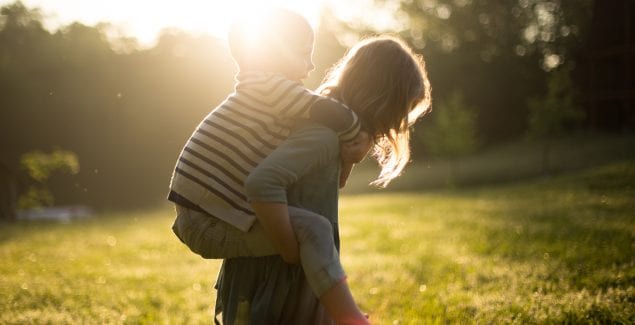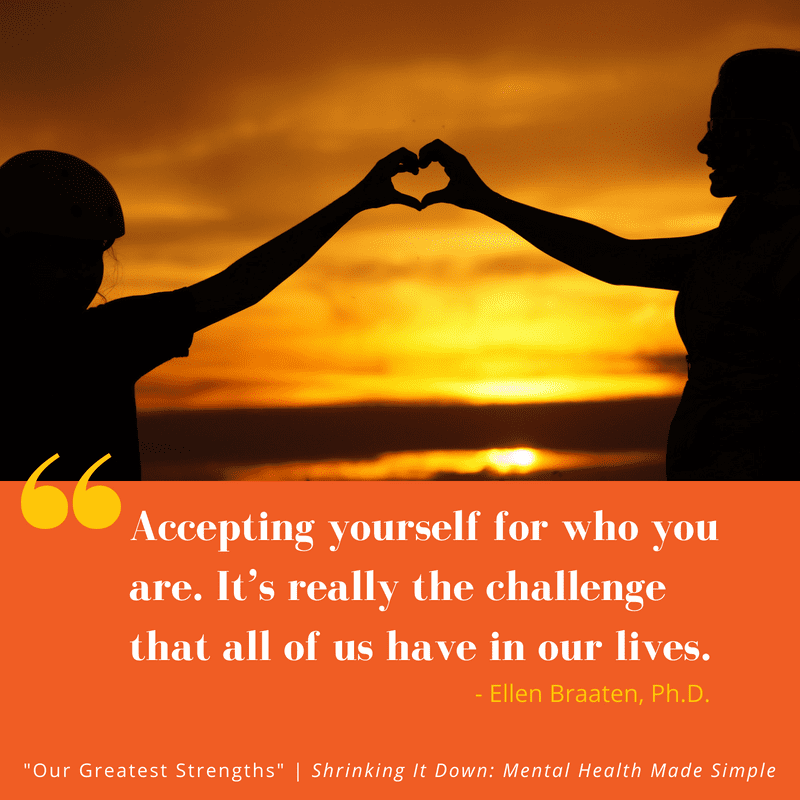Growing Up With a Sibling With a Disability

Posted in: Parenting Concerns
Topics: Child + Adolescent Development, Relationships
“You don’t understand, Mom!” I said. “They were making fun of him! They were imitating his speech and laughing!”
My mom shrugged. It would take more than a couple of small-town high school punks to get her attention.
I must have been around 15-years-old at the time, and these two kids had made fun of my brother, Robert, an adorable 4-year-old boy with Down Syndrome. Down Syndrome is a genetic disorder that leads to developmental delays, intellectual impairment, and low muscle tone. This wasn’t the first time – and would definitely not be the last time – I’d observe a situation like this.
It’s common for people with disabilities to be mocked and discriminated against. When you have a sibling with an obvious disability, you experience this pain second-hand. Robert looked different than other kids. He sounded different too, and when he asked me a simple question these boys heard his unclear speech and parroted it back.
Robert was too little to know what was happening, but I felt enraged. Now, looking back, I realize that these boys probably had issues of their own. There were behavior problems in school, and I wouldn’t be surprised to find out that they had learning disabilities. But back then I wouldn’t have cared. I wanted them to pay for their cruelty. I wanted my mom to do something when she heard what had happened.
My mom’s response was anything but that:
“Ellen, he’s going to hear things like that his whole life. I won’t always be there. He’ll have to learn to deal with this on his own.”
Indirectly, she was telling me that I would have to learn to cope with it too.
Sibling Coping & Resilience
All siblings of kids with disabilities have to find a way to cope, and there is no one right way to do it. Sometimes it can lead to negative consequences, like feeling isolated or a need to be perfect in order to make up for the sibling’s challenges. But there are also positive consequences that have been documented such as an increased capacity for empathy, greater tolerance for individual differences, and resiliency.
Historically, siblings of kids with disabilities have been ignored in research. Few have studied the unique challenges in these families – there are almost no treatment guidelines for how to help a child who is struggling with a disabled sibling. It’s a shame because, next to parents, siblings spend more time with each other in childhood than anyone else. More importantly, siblings tend to be in the life of the disabled family member longer than anyone, including parents.
The impact of having a sibling with a disability changes over the lifespan. Younger siblings tend to worry about how their brother or sister will impact the ability to fit in with peers. There can be a mixture of emotions that range from jealousy (“why does he get all of the attention?”) to protection. At a very young age, siblings start to worry about who will care for their disabled sister or brother if mom or dad aren’t around. These issues tend to become more important as the siblings age.
For me, and for my other siblings, the benefits of having a brother with Down Syndrome outweighs any liabilities. He has brought the rest of the family closer. We care for each other more because we care so deeply for him. I learned that the world can be a difficult place for those who don’t fit a prescribed standard of beauty or behavior. These early lessons in intolerance and even cruelty affected my world view and gave me a deep desire to work on behalf of those who cannot always speak for themselves.
When my brother was born, the idea that everyone should be allowed to attend school was a new concept. Public Law 94-142, which guaranteed a free, appropriate public education to all children with disabilities, was passed in 1975. The law supported over one million children who had been completed excluded from the public education system. It’s hard to imagine a time in our nation’s history when people were excluded from full participation in the education system because of who they were. The rights of the disabled benefited from the work of the civil rights movement.
In many ways I feel fortunate to have observed the shift in this movement first hand. Laws lead to change, but implementation can come slowly. I watched as my mother fought for the services to which Robert was legally entitled. It’s interesting that almost 45 years after passage of PL 94-142, parents still struggle to make sure their children receive an appropriate education. It’s quite likely that my experiences with my brother led me down a career path where it is my life’s work to educate parents and to expand our knowledge of those with many types of learning and emotional differences.
Most siblings of those with disabilities do not have careers in a helping profession as I do, but research suggests that regardless of their career choice, they admit their life is richer. There is an appreciation for the diversity of humanity. A deep sense of loyalty. An opportunity to learn to love someone because of their imperfections.
Robert is now in his 40’s. Thanks to a proper education that included job training, he has been employed his entire adult life. In many ways, my mom was right. He had to learn to speak up for himself – and he does. He lives alone in his own apartment, cooks his own meals, works at a gym, loves attending church every Sunday. He can read and write, but needs another brother’s help to make sense of his finances and to buy groceries.
My other siblings and I have never treated my brother any differently than we treat each other. We tease him about his choice of music. He makes jokes at our expense. We argue politics with him. He scolds us when we’ve behaved badly. We love him. We expect others to treat him with the respect that any human being deserves.
If you are the parent of a child who has a sibling with a disability, here are some things you can do to help.
Be careful your non-disabled child doesn’t take on too much responsibility. Siblings of kids with disabilities tend to grow up faster than kids in other families. They tend to set unrealistically high expectations for themselves. Talk to them about their goals and let them know they don’t have to excel at everything to be loved. Be sure they know they don’t need to make-up for any short-comings in their less competent brother or sister.
Provide age-appropriate discussions about their sibling’s disability. Let them know what caused it and what other people are doing to help treat it. Don’t be afraid to use appropriate terminology and be sure they know that it wasn’t caused by something they “did,” or something they can “catch.”
Create a safe environment. Some kids with disabilities have significant behavioral challenges. Make sure your other kids are safe.
Address siblings concerns about the future. One of the most common concerns of siblings of the disabled as they move into later adulthood is knowing the plan of action for the disabled sibling. Unfortunately, data would suggest this isn’t adequately discussed in most families, even though siblings as young as 12 years of age worry significantly about the future. Make a plan for the future and articulate a plan B in case plan A doesn’t work out.
If you have a child with down syndrome in your life, and are looking for additional support, here are a few resources:
- National Down Syndrome Society Local Support Page
- Down Syndrome Family Network Facebook Page
- International Down Syndrome Coalition Facebook Page

 Share
Share Tweet
Tweet





